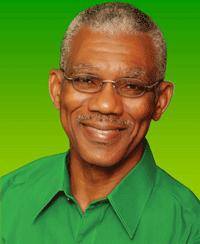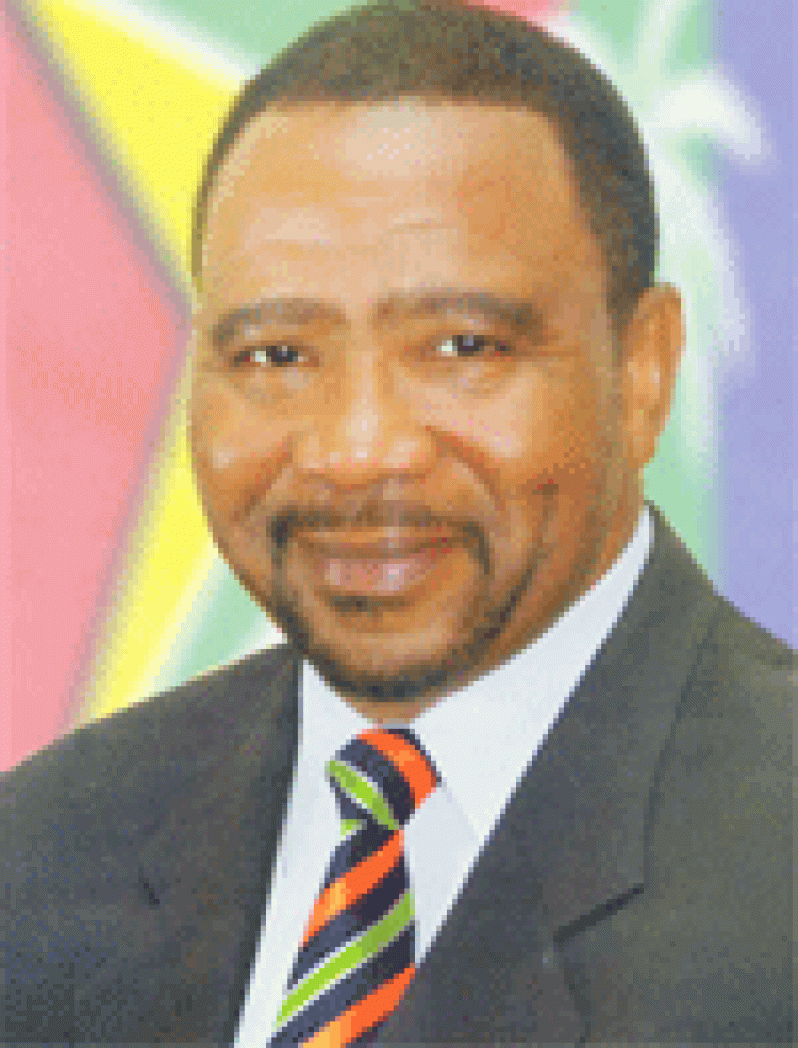— Focus on Party’s coming 17th Biennial Congress
NOW that the Peoples National Congress/Reform (PNCR) is advancing plans for its 17th biennial congress this coming July, it may be useful to have, as public information, the extent of democratic participation by its constituencies for that historic decision against registering to contest last November’s general elections in preference to be under the ‘coalition umbrella’ of a fledgling APNU (A Partnership for National Unity). The PNCR, after all, is not just another political party, or a social/cultural organization. It is, like the older People’s Progressive Party (PPP), a dominant political force in  Guyana, and has been around for some 55 years, mostly under the leadership of its ‘Founding Father’, the late President Forbes Burnham.
Guyana, and has been around for some 55 years, mostly under the leadership of its ‘Founding Father’, the late President Forbes Burnham.
Therefore, when as a Party that held State power consecutively for some 28 years (albeit on the basis of institutionalised electoral fraud for 24 of those years), and subsequently functioned as the major parliamentary opposition force for 19 years until the November 28 national poll, the PNCR had in fact created a new precedent among the leading established political parties in our Caribbean region.
I am aware of small and/or new parties teaming up with old major parties that had track records in governance, but unaware of any example, within the Caribbean, approximating what the PNCR did for last year’s general election when it decided to downplay its own public profile in favour of a fledgling APNU, and held a special congress to choose a presidential candidate to lead that party into the election.
Was that unprecedented political development the consequence of a credibility crisis for the PNCR, or its leader, who had twice failed to deliver an election victory for the party?
That special pre-election congress to elect the party’s presidential candidate was itself remarkable, with its leader, Robert Corbin — at the helm since 2002 with the passing of ex-President Desmond Hoyte — not offering himself as a presidential candidate. He, however, permitted a sort of primary selection process that had resulted in David Granger securing the prize by a majority of just fifteen votes against challenger, Carl Greenidge.
Greenidge and Granger
Now, Greenidge — a former PNC government Finance Minister, who is keeping himself very much in media headlines — is again being projected as a likely challenger to Granger (retired Brigadier of the Guyana Defence Force). Back in January this year, Granger had indicated his interest in throwing his hat in the ring for the party’s leadership contest should he be called upon to do so. His political roots run deep in the PNC.
this year, Granger had indicated his interest in throwing his hat in the ring for the party’s leadership contest should he be called upon to do so. His political roots run deep in the PNC.
At 65, and seemingly flexible in his efforts to win hearts and minds, Granger is perceived to be a more credible candidate than Greenidge to succeed Corbin as leader, given the nature and history of the PNC — before and after its “reform” component that had occurred under Desmond Hoyte, and following the PPP’s introduction with a “civic” attachment for the 1992 election (hence PPPC).
Interestingly, both Corbin and the Party’s long-serving General Secretary, Oscar Clarke, in separate media interviews last week, were anxious to emphasise that the PNCR’s base remained strong and without any erosion for being part of APNU.
Although this claim might be largely accurate, it, nevertheless, points to a defensive stance that undoubtedly relates to possible fallouts, however temporarily, over the APNU/AFC’s slashing politics over the 2012 national budget.
Corbin in particular has been quite forthcoming in his declaration in favour of having “at every level, fresh and talented young faces representing every shade of Guyana’s life in the leadership of the Party at both the local and national levels…” That is an objective he said he is working towards as he prepares to demit the Party’s leadership at the coming July biennial congress.
This is a commendable approach, and one the governing PPP should also seriously contemplate ahead of its triennial congress expected by next October.
Parties youth arms
The PPP and the PNCR would be mindful that both President Donald Ramotar (who is also General Secretary and effective leader of his party) and Granger — once chosen to replace the retiring Corbin — are already in their mid sixties.
Presumably, they would themselves welcome having “talented young faces”, if not entirely new ones, around them to cope with the challenges of our times, when global developments are increasingly having negative consequences for countries in the Caribbean and other regions of the world.
In this context, it seems relevant to inquire of the political health or status of the youth arms of both the PPP (Progressive Youth Organisation) and PNCR (Young Socialist Movement).
Once quite active as torch bearers of their respective Party, both the PYO and YSM seem to be languishing in the far end of priorities of their parties, and more in name than functioning, legitimate youth arms.
Of course, for the PNCR the immediate concern is a new leadership structure, starting with a successor to Corbin who seems determined, this time around, against seeking another term.
General Secretary Clarke was reported last week in an interview with Guyana Times” as stating that “two of the likely nominees” for new leadership “could be Opposition Leader Granger (chairman of APNU) and Greenidge (currently the shadow Finance Minister in parliament).
Sober approach
Clarke was, however, anxious to stress that at this stage “we don’t know yet who will be running…until nominations start coming in and those nominated have agreed to run….”
Well, while the arrangements are being put in place for the forthcoming biennial congress, perhaps MP Greenidge, for one, could consider being less aggressive and angry, as perceived, in his efforts in parliament to get what the opposition feels should be done to improve the quality of governance.
Last week, for instance, having succeeded, with help from the AFC, in getting an admittedly flawed motion passed for amendments to the existing Financial Management and Accountability Act 2003—with a view to ensuring the Supreme Court obtains funding directly through the Consolidated Fund—the Speaker, Raphael Trotman, had to remind him and the National Assembly that the matter could go no further without passage of relevant legislation.
It is a pity that as a former Finance Minister and one with acquired expertise from attachments with international and regional institutions and agencies, the PNCR parliamentarian did not recognize the need to go the route via legislation instead of a motion to achieve his objective.
But then, given the prevailing environment of an apparent competitive approach by opposition MPs to exploit a one-seat majority to derail the government’s policies and programmes, it should not be surprising that both blocs of APNU/AFC parliamentarians chose to gamble with the motion route rather than taking the sober approach as constitutionally required.
The Speaker had to protect his own reputation in pointing to the need for travelling the legislative route. Question now is who and when will draft such legislation?
As is known, ALL legislation passed by the National Assembly must be first be assented to by the President to have effect. Let’s, therefore, hope that there would be a passion more for sober tripartite approaches in Guyana’s governance system rather than the prevailing confrontational mood and, in some cases, immature political behaviour, amid recurring speculations of a snap national poll.




.jpg)










